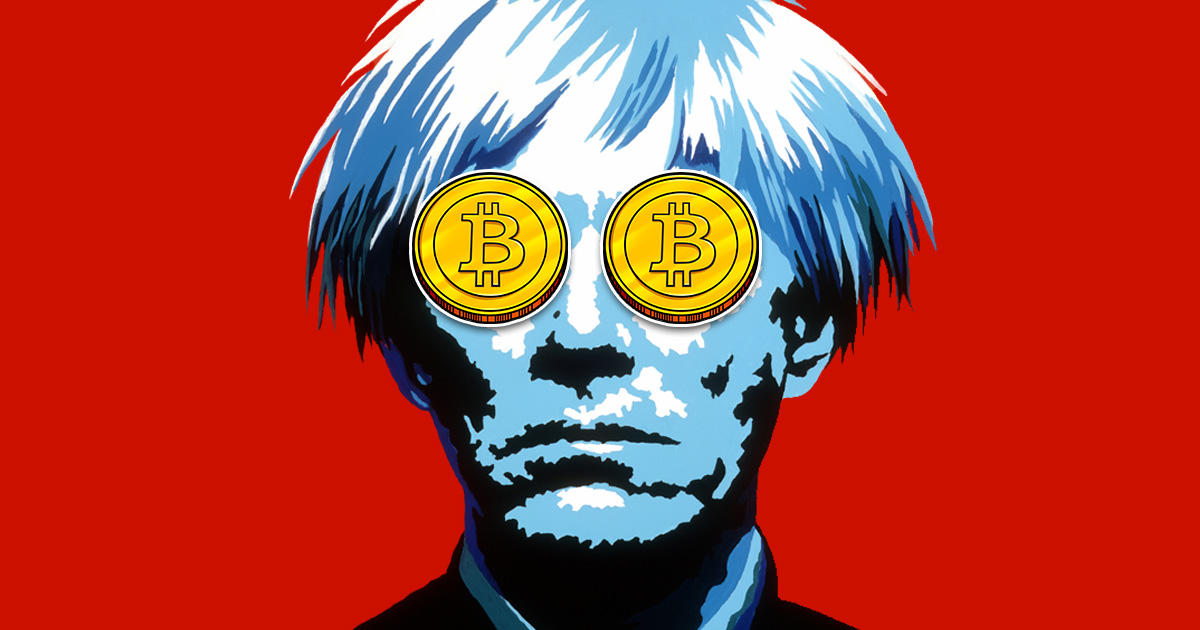Bitcoin and non-fungible tokens (NFTs) stocks are moving mostly in lockstep, not because the two are the same, but because they are new technologies and emerging markets that speak loudly to the digital revolution. In fact, outside sharing blockchain technology as the decentralized digital ledger storing data for security and authentication, bitcoin and NFT are quite distinct. By definition, NFTs are not interchangeable with other tokens (hence the term “non-fungible”), whereas a Bitcoin can be equally traded for any other Bitcoin without distinction. While Bitcoin will only be a digital currency, NFTs are more versatile as they can represent anything digital. That includes rights to music royalties, as is the business model of music DeFi pioneer BAND Royalty (Profile), whose innovation involves structuring NFTs as an access point to a number of different royalties from its constantly growing library of soundtracks. Other common threads between cryptocurrencies and NFTs will keep investments moving in unison, which is important to heavy hitters in the Bitcoin market, including MicroStrategy Incorporated (NASDAQ: MSTR), Square Inc. (Class A) (NYSE: SQ), and Grayscale Bitcoin Trust (OTCQX: GBTC), as well online art trading platform Oriental Culture Holding Ltd. (NASDAQ: OCG), one of the most talked about NFT-related stocks.
- During Q1 2021, sales of NFTs skyrocketed to more than $2 billion compared to $93 million in Q4 2020.
- BAND Royalty is developing robust music royalty ecosystem that provides opportunity to invest in market like never before.
- Company has impressive portfolio of rights to royalties for tracks from superstars such as Justin Timberlake, Beyonce, Jay-Z and more.
- Once BAND’s NFT is staked, NFT holders have four different pathways to access music royalties.
Click here to view the custom infographic of the BAND Royalty editorial.
Where Bitcoin Goes, NFTs Will Follow
So why do NFTs move along with Bitcoin when so differentiated from the quintessential cryptocurrency? It’s not just because of FOMO (fear of missing out), because NFTs started exploding on the scene this year headlined by Christie’s auctioning a collection of Beeple’s digital artwork for $69.3 million in March. Apropos, not counting the Beeple auction or nearly half a billion dollars in sales of NBA video highlights known as NBA Top Shots, NFT sales exceeded $2 billion in Q1 2021, up 20x from $93 million in Q4 2020.
It is also because NFTs are part of the complex encryption network of the Ethereum (ETH) blockchain and often paid for in cryptocurrency. With pricing in ETH, there is a case to be made that NFT’s value can fluctuate with the crypto, although those that see NFTs like a collectible as a store of value would disagree. Much like Bitcoin and other cryptocurrencies, NFTs can be held, sold or traded, so their value fluctuates based on what the market indicates on any given day.
To date, the collectible space has been the primary attention draw, but the breadth of the market is starting to push through, including the music industry joining the mix. On March 12, Music Business Worldwide reported that NFTs grossed $35 million for the music industry in the last 30 days, including Mike Shinoda from Linkoln Park raking in $30,000-plus with his new single “Happy Endings” and Kings of Leon making history by releasing its new album with special perks as an NFT. BAND Royalty joined the throng, conducting a limited private sale of its music NFTs, selling its three top NFTs for more than $200,000 and resulting in combined NFT presales of more than $700,000.
BAND Royalty is groundbreaking in establishing a new NFT paradigm within the music industry. The company is democratizing music royalties by creating new opportunities to participate in a valuable asset class that’s stabilized after years of decline with the advent of music streaming. The company has already amassed an impressive library of rights to royalties for tracks from popular artists such as Justin Timberlake, Beyonce, Jay-Z, Cher, Rihanna, Demi Lovato, Timbaland, Missy Elliott and more.
There is also a unique collection component to owning a BAND NFT. The company has commissioned leading artists to create distinctive 3D artwork for each of the strictly limited-edition BAND NFTs. With musician-facing foresight, BAND intends to dedicate part of its platform to serve as a launchpad for new talent.
The Intersection of Blockchain and Music Royalties
“BAND” is more clever than just a name indicative of the industry of corporate focus. It is also taken from the initials of the company’s founders, Barnaby Andersun (BA) + (ND) Noble Drakoln, two highly sought after KOL’s in blockchain. Andersun doubles as the CEO of blockchain, ecommerce and digital design consulting firm BlockAlchemy in addition to public speaking gigs where he educates and advocates for blockchain, including speaking at the World Economic Forum in Davos and Harvard University on the subject.
Drakoln has an impressive C.V. also, serving as CEO of AR/XR game designer WarePlay Games as well as being a best-selling author and contributor to mainstream media outlets such as Forbes, Fox Business News and Bloomberg. Directly to the point of BAND, Drakoln has spent decades investing in the music royalty space, getting a deep understanding of how to prosper in the business, while building an extensive insider network that he brings to the company.
A First for Retail Investors
As it stands right now, retail investors wanting exposure to the music industry don’t have many options. They can either buy stock in a public music label, invest in funds that buy and sell music royalties, or pursue royalties themselves through websites that auction royalty rights, which typically are beyond the price range of an average person. In what many perceive as a ground-floor opportunity, BAND Royalty is changing the landscape — not to mention making it more exciting — by making it accessible for retail investors to participate by owning NFTs.
Earlier this month following its private sale of music NFTs, which generated almost $1 million, BAND launched its NFT sales platform on its website, creating the first music NFT-only platform. This was accomplished by opening access to the first series of 3,000 BAND NFTs on its platform, staggering the release based on rarity. The company’s plan is to keep the NFT count tight, much like other popular NFT projects such as CryptoPunks and Hashmasks, both of which have had secondary market sales in the millions of dollars. The long-term intention is to have a maximum of 12,000 BAND NFTs across four different series to be released over the next 18 months.
Upon purchasing a BAND NFT, an investor can trade it or hold it just like any other cryptocurrency or they can “stake” it following BAND KYC protocols. Staking means that the investor has a chance to participate in the revenues from one of three music royalty pools: print music royalties, mechanical and public performance royalties, or synchronization royalties, most likely with their share being paid out in the upcoming BAND token. Staking can be for different time periods ranging from 90 days up to five years.
This Chart-Topper Just Started Playing
As explained by Andersun on “The Nifty Show” podcast, the vision of the company is starting to be realized. The first series of NFTs are now launched, and the requisite smart contracts that facilitate staking are expected to be completed this quarter. Staking transactions are a milestone for the company as the catalyst for revenues. The goal is to allow BAND NFT stakers the ability to share in different streams of income, including 50% from all BAND royalty music catalog revenue, a percentage from any auctions of single BAND music tracks sold, 5% on any BAND NFTs traded in the secondary market on OpenSea (or the BAND platform) and 5% from re-selling of music royalties on the BAND platform.
The strategy includes assembling a robust music royalty ecosystem, complete with a launchpad for emerging artists. Currently, musicians are at the mercy of long-held standards of the music industry, a process that BAND intends to demonstrably disrupt with a new platform that provides artists with creative ways to earn and keep royalties, while better connecting with fans.
Upending the Norm
The music industry has been looking for a paradigm shift back in favor of artists ever since internet and streaming music rang a death knell for terrestrial radio. The irony is that where technology once put artists in a hurt locker, it now may pave the pathway to prosperity once again with blockchain and NFTs. These high-tech methods may capture all the top players spanning the entire breadth of music, crypto and blockchain domains looking for new methods of monetization to enhance revenue streams.
MicroStrategy Incorporated (NASDAQ: MSTR) is the largest independent publicly traded business intelligence company, but it is far better known for its policy of aggressively buying Bitcoin, led by CEO and Bitcoin bull Michael Saylor. During the first quarter of 2021, MicrosStrategy acquired about 20,857 Bitcoins for $1.086 billion at an average price of $52,087. As of the end of March, the company holds approximately 91,326 Bitcoins at an aggregate cost of $2.21 billion with an average purchase price of $24,214 per Bitcoin, including all fees and expenses.
Square Inc. (Class A) (NYSE: SQ) is a world-class financial services company, with an entrepreneurial goliath in Jack Dorsey as its founder and CEO. Square has invested millions of dollars buying Bitcoin and makes it possible for customers to buy/sell Bitcoin as well as accept fractional payments in the crypto. In March, Dorsey actioned off a digital version of his first-ever tweet as an NFT, which brought in more than $2.9 million. At approximately the same time, Square was investing $297 million in cash and stock for an unspecified majority stake in TIDAL, the global music and entertainment platform founded by Jay-Z. There has been no shortfall of speculation by music and blockchain pundits that NFTs will enter the picture with this new marriage.
Grayscale Bitcoin Trust (OTCQX: GBTC) operates the largest Bitcoin and Ethereum investment funds in the world and were the first to bring a digital currency investment product to the public market. The company has made it perfectly clear that management is “100% committed to converting GBTC into an ETF (exchange traded fund).” Today, Grayscale Bitcoin Trust remains one of only two crypto funds in the world with the distinction of being an SEC-reporting company. The other fund, perhaps unsurprisingly, is the Grayscale Ethereum Trust.
Oriental Culture Holding Ltd. (NASDAQ: OCG) is an online artwork marketplace founded in 2018 that went public on the NASDAQ exchange in December, raising $20.3 million, twice as much money as it had originally applied for in November 2019. Shares were originally priced at $4, opened at $6.25 and then went as high as $25.85 on the third day of trading. A play largely underscored by speculation that OCG can parlay its platform into one using blockchain or NFTs, the stock has been highly volatile, currently trading back down around its $4 IPO price after being as high as $17 per share in March.
NFTs aren’t exactly new; they’ve been around for years. However, their popularity defines them this time as a technology that has staying power to digitalize and democratize essentially just about anything. Being relatively nascent, speculation abounds, but most know how things have gone for cryptocurrencies, and with investors having a better understanding of blockchain today, there isn’t going to be nearly the learning curve for NFTs as the segments move in tandem.









